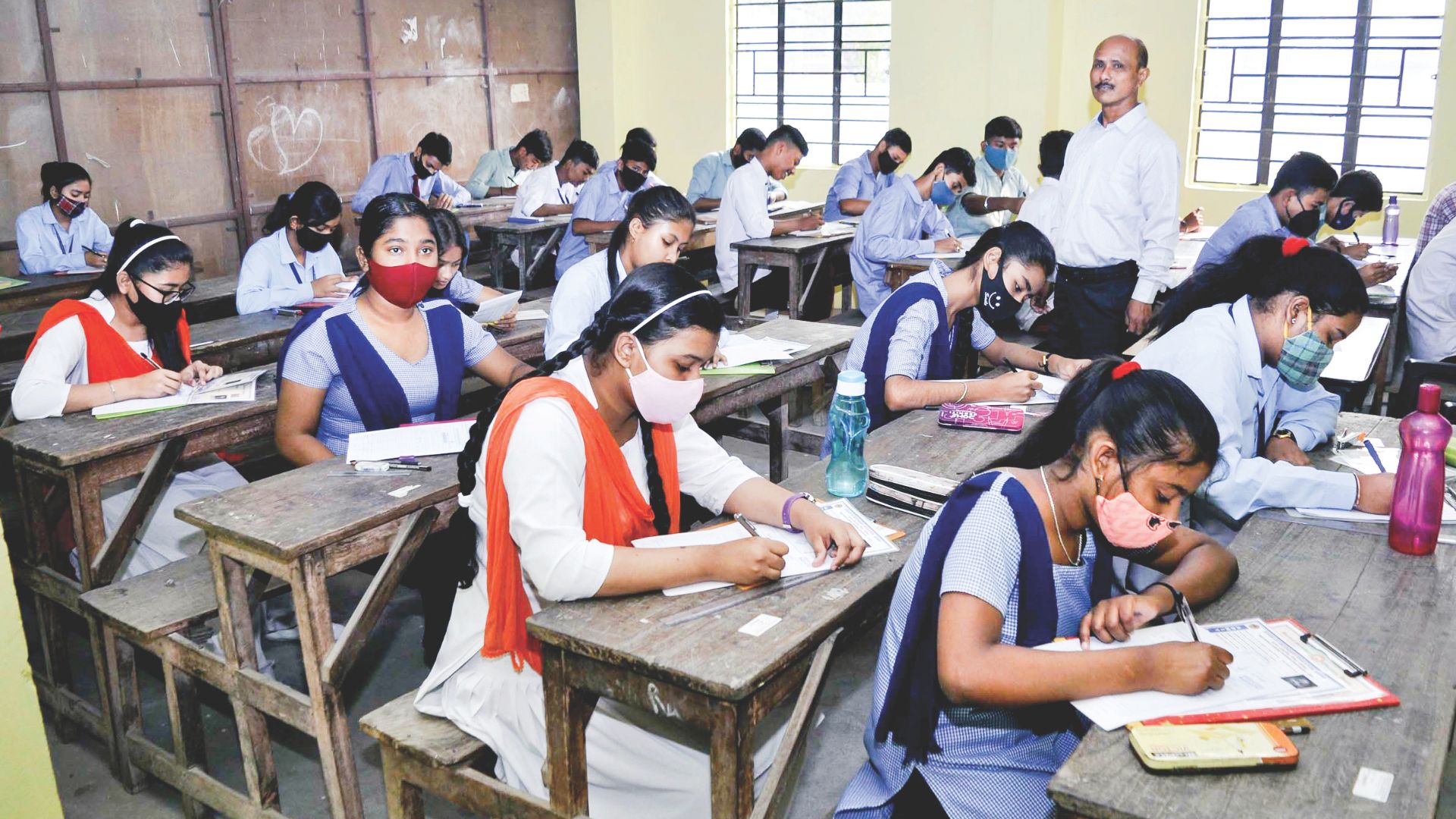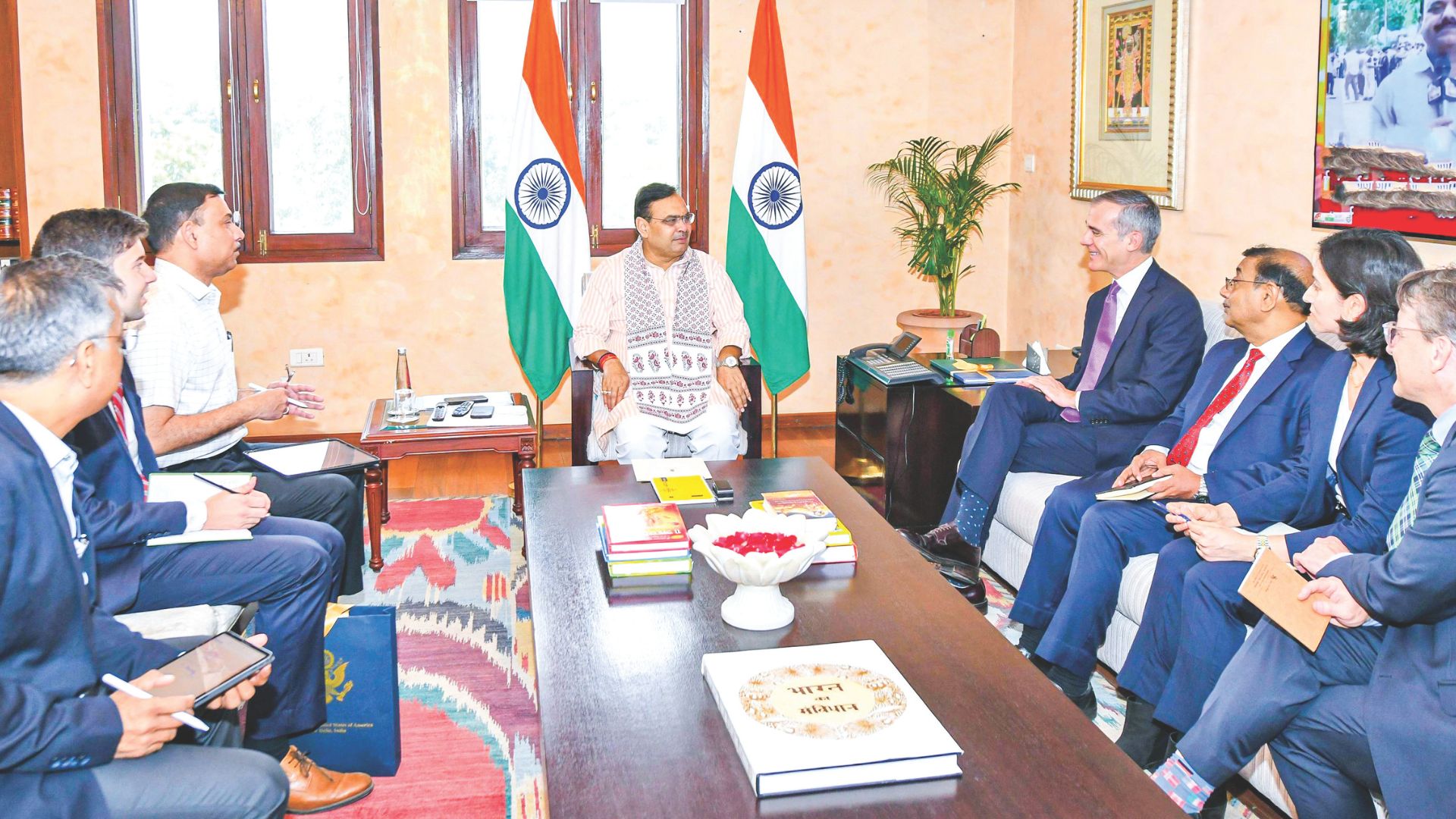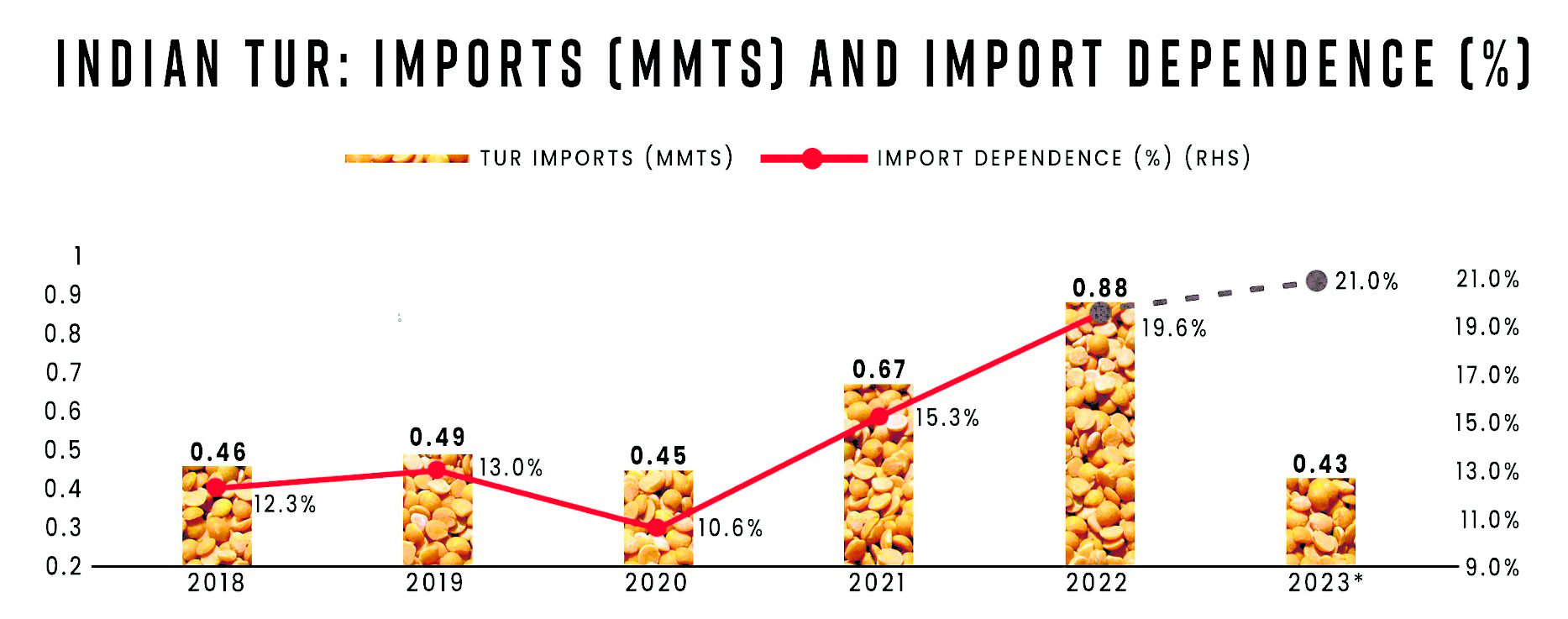
The government said there will be no restrictions on import of tur and urad dal till March 2025 as part of efforts to boost domestic supply and keep prices under control.
Tur and urad dal have been kept under free category, which means there will be no curbs on their imports.’
The Directorate General of Foreign Trade (DGFT) has issued a notification, extending the free import policy for urad and tur dal until March 31, 2025. Initially set to expire in March 2024, the government’s decision aims to maintain flexibility in the import of these pulses. This move follows the government’s earlier decision to allow the import of tur, urad, and moong dal under the ‘free category’ starting from May 15, 2021, with the original validity until October 31, 2021.
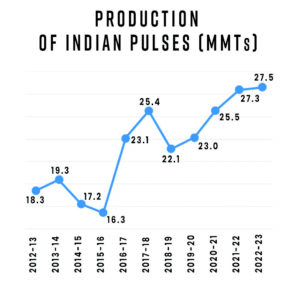
Pulses like mung, tur, and urad hold significant importance in the daily diet of the Indian population, prompting government agencies to closely monitor their trade. With a yearly consumption exceeding 20 million metric tons, these commodities are essential staples. The extension of the free import policy reflects the government’s commitment to ensuring an uninterrupted supply of these pulses in the market.
Historically, the import dynamics of tur dal reveal interesting patterns. From 2015-16 to 2019-20, tur import levels fluctuated between 4-5 LMT (Lakh Metric Tons), reaching a peak of 7 LMT in 2016-17. The surge in production during 2016-17, with a record high of 48.7 LMT, prompted the imposition of a 10 percent import duty on March 28, 2017. Additionally, a restriction of 2 LMT on the quantity of import was enforced on August 5, 2017. Notably, over 95 percent of these imports came from Least Developed Countries (LDCs), with Myanmar, Mozambique, Malawi, Tanzania, and Sudan contributing between 93-99 percent of total tur imports.
To address the dynamics of tur imports, the government enhanced the restriction on tur imports to 4 LMT on July 3, 2019. Furthermore, a Memorandum of Understanding (MoU) was signed with Mozambique to ensure a consistent and assured supply of pulses, adding a strategic dimension to trade relations.
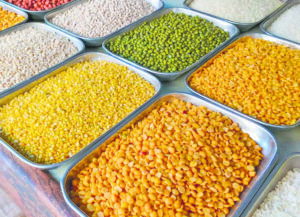
Examining the combined import figures of moong and urad dal from 2015-16 to 2019-20, an average of 5 LMT was observed. In response to market conditions, restrictions were imposed on their imports, with a specific limitation of 3 LMT introduced on August 21, 2017.
This regulatory environment demonstrates the government’s commitment to managing the import dynamics of essential commodities. By extending the free import policy for urad and tur dal, authorities aim to balance domestic demand, market conditions, and international trade relations, ensuring a steady and reliable supply of pulses for the Indian population.
The focus on trade agreements and restrictions reflects a strategic approach to safeguarding the interests of both producers and consumers in the pulse market.




